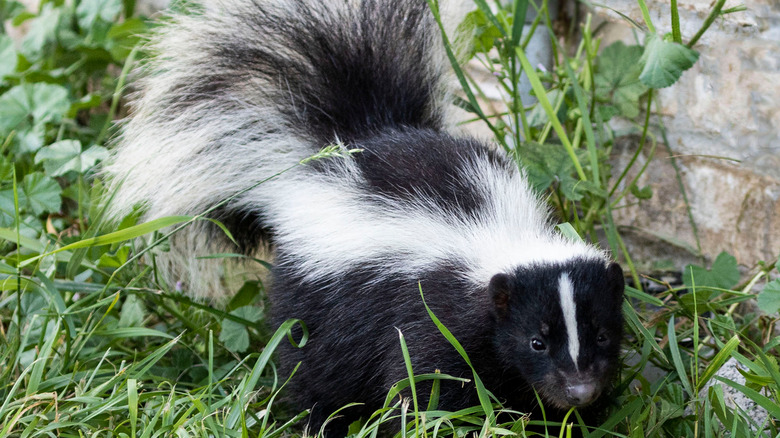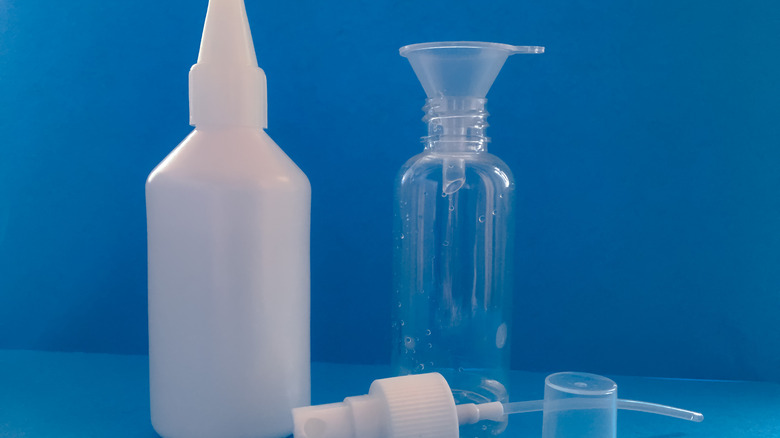The First Thing You Should Do After Getting Sprayed By A Skunk
Nothing stinks quite like crossing paths with a skunk — literally. When provoked, this small, striped mammal can release as much as 2 teaspoons' worth of a smelly, yellow oil from its anal glands (via National Capital Poison Center). This oil then evaporates into a gas in the form of skunk spray, and the sulfur-containing compounds give off that signature rotten egg-like stench. Even worse, a skunk's musk can reach as far as 20 feet away. "Usually, if you have one altercation with a skunk, you remember that the rest of your life," Kenton Kerns, a biologist at the Small Mammal House of the Smithsonian's National Zoo in Washington, D.C. told Smithsonian Magazine.
Temporary stinging, redness, tearing, and burning sensations can occur upon contact with skunk spray, especially if it gets in the eyes, explains Poison Control. In some cases, exposure may also cause short-term blindness (via Smithsonian Magazine). Although uncommon, the National Capital Poison Center says that skunk spray may also prompt lung irritation or aggravate pre-existing asthma symptoms if inhaled. Additionally, some people may experience feelings of nausea.
Thankfully, these animals tend to spray only on the rarest of occasions. Kerns explains that skunks usually preserve their spray, as it can take as long as ten days for a skunk's body to replenish its oil stock (per Smithsonian Magazine). However, on the off chance that you do get sprayed by a skunk, here are the steps you'll want to take to protect yourself and get rid of that smell.
Clean and decontaminate the area with this mixture
After being sprayed by a skunk, you'll first want to decontaminate the affected area (via National Capital Poison Center). To do so, create a mixture using 1 quart of 3% household-strength hydrogen peroxide, along with a quarter cup of baking soda, and 1 teaspoon of liquid dish detergent. The hydrogen peroxide will go to work, breaking down the odor-causing compounds in the spray, while the dish detergent will help you smoothly wash away the oil. Timing is key, so it's important to apply the solution to the skin right away. Leave it on for five minutes before rinsing with water and repeat again as often as necessary. If skunk spray has come in contact with your mouth or eyes, however, do not use the solution. Instead, rinse your eyes with water for a period of 15 minutes. The water should be at room temperature rather than hot or cold. If skunk spray has gotten in your mouth, rinse your mouth with water, spit it out, and repeat as needed.
While you may have heard through the grapevine that tomato juice is a viable treatment option for skunk spray exposure, the National Capital Poison Center says there's no evidence to back up this claim. Instead, stick to the suggested treatment above, and be sure to watch for the development of symptoms. If you experience ongoing or worsening pain, eye redness, or respiratory irritation, including coughing, be sure to seek medical attention.


